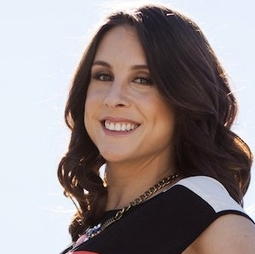When it comes to productivity, most people think the key to getting ahead is doing more. More work, more clients, more time… just more. And when you’re stuck in this mindset of “more, more, more,” it can feel impossible to step away and find time for yourself.
But carving out that time, making yourself a priority, and cultivating a consistent self-care routine will not only help you avoid burnout (and be a happier person in the process), but it can also help you ramp up your productivity—and squeeze more out of the time you are at work.
So why, exactly, is self-care so important? What are the self-care practices that will directly impact productivity? And how can you get out of the “more, more, more” mindset, create a solid self-care routine, and reap the productivity-boosting rewards as a result?
What Is Self-Care?
When you hear “self-care,” you might think of bubble baths and spa days—but the truth is, it’s much more than that.
Self-care can be defined as any deliberate action you take in order to support your mental, physical, and emotional health. So, while face masks can certainly be a form of self-care (at least for me!), so can taking a walk outside, calling a supportive friend after a rough day at the office, or skipping a networking event to curl up in bed and read.
At the core, self-care is about fostering the relationship and connection you have with yourself. It’s about giving your whole self (mind, body, spirit) exactly what you need to function at your highest (and happiest!) level—which can, in turn, make you more productive.
“People that look after themselves [and practice self-care] do have better cognitive ability. They do have better focus and they do have better concentration,” says Dr. Russell Thackeray, a licensed clinical psychologist who consults on the topic of productivity. “They tend to actually produce more.”
But how, exactly, can self-care make you more productive? And what are the self-care practices that are going to have the biggest impact on productivity?
Simple Self-Care Practices That Will Make You More Productive
So now that we covered what self-care is, let’s talk about how it can make you more productive—and which self-care practices are going to give you the most productivity boosting bang for your buck.
Get Some Sleep
There’s a huge correlation between productivity and sleep—mainly, if you’re not getting enough sleep (or enough high-quality sleep), your productivity is going to take a nosedive.
One study found that workers who reported insomnia or insufficient sleep spent three times as long on time management throughout the day as workers who reported quality sleep. The sleep-deprived workers also reported difficulties with motivation, focus, memory, and decision-making.

“When people have had poor sleep, their ability to concentrate and focus is diminished. But also, their ability to retrieve information. Their actual memory seems to be harmed,” says Thackeray. “There is a correlation between excessive alcohol abuse and lack of sleep, producing the same sort of prefrontal cortex inability…So in other words, if you start to have poor sleep is as almost is if you’re operating as if you’re drunk.”
And if that’s not enough evidence for you, an analysis of major sleep studies found that you’re 12% more likely to die early if you’re not getting enough quality sleep (which is the ultimate productivity killer—pun intended).
If you want to increase your productivity (and feel better in the process), there’s no way around it—you need to get more and better sleep.
If you’re a person who struggles to get the high-quality Zzz’s needed to be your best and most productive self (and these days, who isn’t?), try developing a bedtime routine. A consistent nighttime routine can help signal to your brain and body that it’s time to unwind and get some shut-eye. “You need to have a routine to go to sleep so your brain knows that it’s going to settle down…and to start releasing melatonin to be able to sleep,” says Thackeray.
A few hours before bed, start a routine that slowly eases you into a more relaxed (and sleep-friendly) state. Turn off your screens (phones, TVs, tablets, and other screens emit blue light, which inhibits the brain’s ability to produce the sleep hormone melatonin). Take a bath. Change into your pjs. Dim the lights and read a book in bed, like an actual book that you can physically turn the page.
These practices you incorporate into your nighttime routine are up to you, but you need to do them consistently. Eventually, your brain and body will start to associate your nighttime routine with going to bed—and it’ll be easier to fall (and stay) asleep.
Put Down Your Phone
You might think your phone is the secret to becoming a productivity powerhouse (you are walking around with a super computer in your pocket after all!)—but the truth is, one of the best things you can do for your productivity (not to mention your happiness!)?
Put your phone down.
Smartphones are like the allegorical wolves in sheep’s clothing; they may seem like they’re helping you get more done, but in reality, they’re tanking your productivity.
Smartphones are a huge distraction; the average person gets almost 50 push notifications per day—and every time your phone buzzes with a Facebook notification or a text message (and pulls you away from the task at hand), it can take a whopping 23 minutes to get back in the zone and refocus.
Your phone can also zap your memory (one study found that just five minutes of mobile phone use can negatively impact memory) and wreak havoc on your sleep (thanks to that pesky blue light)—none of which are exactly productivity boosters.
Now, we’re not saying to toss your iPhone out the window. But putting it down every once in awhile and stepping away from 24/7 connectivity is a form of self-care—and it’s a form of self-care that will dramatically increase your productivity (a recent study found that having a phone in the room, even if it’s off, can lower productivity—and removing phones from the work area significantly increased performance).

If you’re working on a project, stash your phone in another room so you can focus on the task at hand and not be tempted to look at your phone every 30 seconds.
Schedule screen-free time every week (whether that’s a few hours or an entire day) to spend time engaging in your work, life, and relationships sans technology.
Turn off your phone a few hours before bed so it doesn’t negatively impact your sleep. Remove as many distractions from your phone as possible (we’re looking at you, Candy Crush!) so when you do have to use your phone, it’s less likely to hold your attention—and keep you from working on the things (both professionally and personally) that hold meaning for you.
In other words, stepping away from your phone allows you to get more done and be more present and engaged with your work and life—and if that’s not a form of self-care, we don’t know what is.
Get (And Stay) Present
Most people spend a lot of time stressing about the past or the future—so much that it keeps them from being in the now.
But one of the best ways you can take care of yourself (and increase productivity in the process) is bringing your attention to the present with mindfulness meditation. “Mindfulness is really your ability to focus on things which are in here and now….[it’s] this idea of really being present in the moment,” says Thackeray.
Carving out a few minutes a day to bring your attention to the present moment might seem like a small act of self-care—but it can make a huge impact. People who meditate on a regular basis enjoy a laundry list of productivity-boosting benefits like improved memory, decreased stress and anxiety, better focus and concentration, an easier time multitasking, and an increase in creative thinking.
In fact, mindfulness meditation is so powerful, it can even change your brain structure for the better. Meditation has been shown to increase gray matter density in the hippocampus (which is responsible for learning and memory) and decrease gray matter density in the amygdala (which plays a key role in the body’s anxiety and stress response).
And the best part? You don’t have to meditate for years in order to start seeing changes. Studies show that just two weeks of mindfulness practice can improve cognitive function.

If you’re intimidated by the thought of sitting silently and listening to your breath, don’t be! There are a ton of resources out there, like the meditation app Headspace, to help you ease into a consistent mindfulness practice—and increase your productivity as a result.
Shake Things Up And Throw Your Routine Out The Window
Wake up.
Go to work.
Work, work, work.
Go home.
Go to sleep.
It can be easy to get stuck in a routine. And while good habits can certainly make you more productive, doing the same thing day in and day out can make your work (and life!) seem “same old, same old”—which can make it harder to feel excited, created, and motivated to get things done.
Which is why if you’re stuck in a rut, one of the best things you can do to practice self-care is to get out of that rut and switch things up.
Think of it like you would a workout. “If you go to the gym and you exercise only one arm all the time, you’ll end up with one massive arm—and the rest of your body’s puny,” says Thackeray. “And it’s the same with your brain…the neuroplasticity of your brain is stimulated by doing different things. It’s stimulated by change.”
If you’re feeling stuck, make a conscious effort each day to get out of your routine. If you work from a home office, try working from the living room—or get out of the house and work at a coffee shop.
If you usually get your exercise with a morning run, try hitting a spin class or hot yoga a few times a week. If you usually schedule client meetings for the afternoon, try knocking them out in the morning—and tackling more creative work after lunch. Changing up your daily routine can help you identify your most productive hours.
You may be surprised to find out that the early mornings or even late hours of the evening are the best time for you to cruise through your to-do list. Giving yourself that flexibility will allow you to discover a new path towards productivity.
The point is, it’s easy to get stuck in a routine that isn’t the best fit for you (or your productivity level)—so if you want to get more done and take better care of yourself in the process, try switching things up every so often.
How To Get Started With Self-Care
So, now that you know how important self-care is to being more productive—and which self-care practices you need to start incorporating into your day-to-day—let’s talk about how, exactly, to make that happen.
If you’re not currently practicing self-care, here are a few tips to get started on the road to consistently incorporating self-care into your daily work (and life!) routine:
Start With Baby Steps
The point of self-care is to feel like you have more time and freedom to get things done, not less—so the last thing you want is for self-care to become just another item on your never-ending to-do list.
If the idea of carving out time for yourself feels overwhelming, start small. You don’t need hours every day to take care of yourself—just a few minutes of self-care each day can have a huge impact on your productivity.
Make A Date… With Yourself
A self-care routine isn’t just going to happen—you need to make it happen. Put self-care on your calendar like you would any other important appointment—and then follow through with it, no matter what.
Be Willing To Try New Self-Care Practices
It might take a bit of trial and error to find the self-care practices that are going to deliver the most benefit to your work, productivity, and life. And that’s ok! There’s no one-size-fits-all approach to self-care. “It’s the variety. It’s not doing one thing. It’s doing many things,” says Thackeray.
Be willing to try new self-care practices, both big and small. If something makes you feel better and helps you get more done? Great—work it into your routine. And if it doesn’t? No worries—chalk it up to research and move on to the next best thing.
The Self-Care Zone Of Increased Productivity
Practicing self-care has all kinds of benefits for your physical, mental, and emotionally health—and it can also transform you into a productivity powerhouse. So what are you waiting for? Master your mindset, put yourself first, and rejoice as you get more done as a result!








































